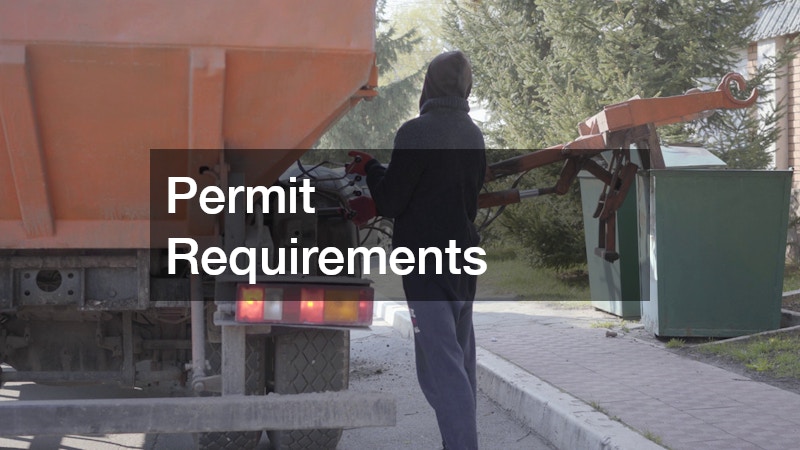In this article, we’ll cover the essential considerations and frequently asked questions you need to address before renting a roll off dumpster. Whether it’s for a home renovation, construction project, or cleanout, knowing the right questions to ask can make the process smoother and more cost-effective. Understanding the logistics involved will prepare you better to handle waste efficiently, ensuring you comply with regulations while managing your project effectively.
Understanding Roll Off Dumpster Sizes
Choosing the right size roll off dumpster is crucial to ensure you have ample space for your waste materials. Dumpsters come in various sizes, typically ranging from 10 to 40 cubic yards. It’s vital to assess the scale of your project to select the size that accommodates your disposal needs adequately.
For smaller projects like garage cleanouts or minor renovations, a 10-yard dumpster may suffice. Medium-sized projects, such as kitchen renovations, may require a 20-yard dumpster, while larger construction or demolition projects often call for 30 or 40-yard options. The key is to align the dumpster size with the project’s anticipated waste output.
Having a properly sized dumpster helps prevent the inconvenience of having to arrange for a second rental due to insufficient space. On the other hand, renting a dumpster that’s too large may result in unnecessary costs. Thus, balancing the anticipated volume of debris with the appropriate dumpster size is essential for efficiency and cost-effectiveness.
Calculating the Volume of Waste
Estimating the volume of waste your project will produce can significantly help in selecting the right dumpster size. Consider including all potential waste materials such as construction debris, old furniture, and yard waste. A more accurate estimation prevents complications like having to upgrade your rental at additional expense.
A useful approach is to evaluate each project’s aspects and calculate expected waste in cubic yards. Some project scenarios will have predictable outputs, while others may require more detailed assessments. Consult with professionals if necessary to get a more precise calculation to ensure alignment with your waste management plans.
Underestimating your disposal needs can lead to project delays, while overestimating could unnecessarily increase your rental expenses. Be sure to incorporate safety margins in your estimates to avoid logistical setbacks, balancing between practicality and budget constraints. Remember, effective waste measurement is at the heart of a streamlined rental process.
Oversizing vs. Undersizing Dilemmas
The decision between oversizing and undersizing a roll off dumpster involves weighing various factors. Generally, renting a slightly larger dumpster can be advantageous as it provides flexibility in managing unexpected excess waste without requiring additional rentals. This, however, should be balanced against potential cost increments associated with larger dumpster sizes.
On the flip side, undersizing can create significant inconvenience and added costs due to multiple rentals. In many cases, incurring these additional expenses could have been avoided by opting for a larger dumpster from the start. It involves assessing whether the cost differential justifies the convenience offered by larger dumpsters.
Breakdown of Rental Prices and Fees
The cost of renting a roll off dumpster can vary based on several factors including size, location, and rental duration. Typically, the base rate covers the size of the dumpster and a predefined rental period, often ranging between seven to ten days. Additional fees may apply for delivery, pickup, and landfill disposal, collectively contributing to the final price.
Understanding the pricing structure will help manage your budget effectively, particularly for projects with tight financial constraints. It is worth noting that different providers may have varying pricing models. Being aware of these differences ensures that you negotiate the best possible terms for your situation.
Seek comprehensive quotes from several providers before making a decision. Detailed breakdowns allow you to compare specific items, ensuring transparency and clarity. Be cautious of hidden charges, which may unexpectedly inflate your total cost, and negotiate terms to protect your financial interests.
Potential Additional Charges
Among the additional charges to anticipate with dumpster rentals are excess weight fees and penalties for exceeding the rental period. Landfills typically charge for waste by weight, making it crucial to assess how weighty your debris might be to avoid surcharge surprises. Similarly, keeping the dumpster beyond the agreed timeline usually incurs daily penalties.
Another potential cost liability arises from disposing of prohibited materials. Be clear about what items aren’t allowed in roll off dumpsters to avoid fines or unexpected fees. Ensure you explore alternative disposal options for such materials to prevent incurring these charges.
Engage with your provider to understand any contingencies that might attract additional fees. Familiarizing yourself with these terms allows you to plan effectively and avert budgetary excesses. Proactive communication with your rental company ensures you navigate these financial nuances smoothly.
Permit Requirements
Obtaining the necessary permits for your roll off dumpster involves understanding the requirements for your specific project location. Whether a permit is needed can depend on factors like dumpster size, placement site, and local jurisdiction rules. It is vital to contact local authorities to ascertain if a permit is mandatory or to confirm any stipulations tied to the permit.
Renting a roll off dumpster doesn’t have to be a daunting task. By understanding the size, costs, and regulations involved, you can make informed decisions that will save you time, money, and hassle. Armed with this knowledge, you’ll be well-prepared to select the right roll off dumpster for your needs.




